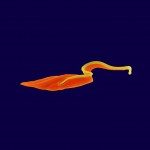Link to Pubmed [PMID] – 33165561
Link to DOI – e20200116010.1083/jcb.202001160
J Cell Biol 2021 Jan; 220(1):
Cilia and flagella are required for cell motility and sensing the external environment and can vary in both length and stability. Stable flagella maintain their length without shortening and lengthening and are proposed to “lock” at the end of growth, but molecular mechanisms for this lock are unknown. We show that CEP164C contributes to the locking mechanism at the base of the flagellum in Trypanosoma brucei. CEP164C localizes to mature basal bodies of fully assembled old flagella, but not to growing new flagella, and basal bodies only acquire CEP164C in the third cell cycle after initial assembly. Depletion of CEP164C leads to dysregulation of flagellum growth, with continued growth of the old flagellum, consistent with defects in a flagellum locking mechanism. Inhibiting cytokinesis results in CEP164C acquisition on the new flagellum once it reaches the old flagellum length. These results provide the first insight into the molecular mechanisms regulating flagella growth in cells that must maintain existing flagella while growing new flagella.



